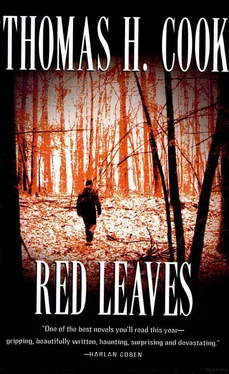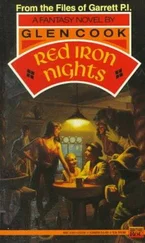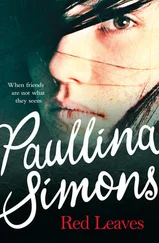Even then, I stayed in place for fear that if I left too soon I might come upon one or the other of them and reveal what I'd seen at the tower.
Five minutes went by, then ten, and at last it seemed safe to leave. I drove back to the main road and headed home to where I knew I would find Meredith reading in bed and Keith secreted in his room, listening to music or playing his computer games. I thought I knew the things that were on Meredith's mind, either Keith or some problem at the college. But Keith was much more of an enigma now, a boy who smoked, cursed, perhaps even lied to the police and me about—I couldn't even say how many things he might have lied about. I only knew that I couldn't stop my own growing suspicion that the anonymous caller on the police hotline had been right, that there was something wrong.
THIRTEEN
The next morning Keith left for school at his usual time. From the front window I watched as he mounted his bicycle and peddled up the short incline to the main road. Physically, he was burdened by nothing more than the book bag that hung at his back, but I couldn't help but consider the other weights he bore—confusion, isolation, loneliness. Still, these were no more than the usual burdens of a teenage boy, and I worked to dismiss any doubts that they might not be the only ones he carried.
"Well, I guess no news is good news."
I turned to see Meredith standing a few feet behind me, her gaze following Keith as he made his way up the incline and disappeared behind a wall of forest undergrowth.
"Nothing new from the cops," she added. "I guess that's a good thing."
I continued to peer out into the woods. "I suppose," I said dryly.
She cocked her head to the right. "You sound pessimistic, Eric. That's not like you." She came over and drew me around to face her. "You okay?"
I smiled weakly. "I'm just tired, that's all. Thinking about everything."
"Sure," Meredith said. "And it couldn't have been a very good experience, Vince Giordano coming up to you like that." She placed her hands on either side of my face. "Listen, we'll go to Dr. Mays's party tomorrow night, get out of this gloom, have a good time. We both need it, right, a chance to relax?"
"Yes."
With that she kissed me, though dartingly, spun around, and headed up to our bedroom to finish dressing.
I remained at the window, watching the morning light slant through the overhanging trees. I had never actually noticed how beautiful it was, the small piece of woodland that surrounded our house. For a moment I recalled the day we'd moved in, how before unloading the truck we'd taken a moment to stand and look around, Meredith with Keith beside her, how bright the day had been. How on that day, as we'd huddled together in this perfect wood, we had all been smiling.
It was a Thursday morning, and so, rather than drive directly to the shop, I headed for the retirement home where my father had lived for the past four years. I'd dropped in on him at exactly the same day and time since he'd first taken up residence there. Even in old age, he'd maintained his aversion to what he called "untimely surprises," by which he meant everything from a gift offered on any but appropriate occasions to un-scheduled visits by either of his two sons.
That morning he received me as he always did, in a wheelchair parked on the home's broad front porch. Even in winter, he preferred that we sit outside, though in recent years, he'd given in a little on that one, and so from time to time I'd found him in the front room, his chair placed a few feet from the fireplace.
"Hello, Dad," I said as I came up the stairs.
"Eric," he said with a crisp nod.
I sat down in the wicker rocker beside his chair and glanced out over the grounds. They were roughly tended, dotted with crabgrass and dandelions, and I could see how much they offended him.
"They'll wait for frost to kill the weeds," he grumbled.
He'd always been a stickler that the spacious grounds surrounding the grand house on Elm Street were always perfectly manicured. He'd hired and fired at least ten groundskeepers during as many years. They were lazy or inept, according to him, though he'd never permitted my mother to so much as pick up a spade to correct their deficiencies. Her job had been to maintain my father, see to it that his suits were pressed, his desk cleared, his dinner on the table when he triumphantly returned home each evening. A woman's work, he'd pointedly declared, is always to be done on the inside.
"I guess you heard about Amy Giordano," I said.
He continued to stare out across the unkempt grounds.
"The little girl who disappeared," I added.
He nodded, but with little interest
"I guess you've also heard that Keith was babysitting her that night," I said.
My father's lips jerked downward, "He was bound to get in trouble," he said sourly. "This or something else."
I'd never guessed that my father had any such opinion of my son.
"Why do you think that?" I asked.
My father's eyes drifted over to me. "You never stood up to him, Eric," he said. "You never made him mind you. Same with Meredith. Hippies."
"Hippies?" I laughed. "Are you kidding me? I was never a hippie. I went to work when I was sixteen, remember? I didn't have time to be a hippie."
He turned back toward the yard, his eyes now strangely hard. "From the first time I saw him, I knew he'd be trouble."
In all the fifteen years of my son's life, my father had never expressed such a grim notion. "What are you talking about?" I demanded. "Keith has always been a good kid. Not the best grades, but a good kid."
"Looks like a bum," my father growled. "Like he lives on the street. Lazy. Like Warren."
"Warren's been good to you, Dad."
"Warren is a bum," my father sneered.
"When he was a kid, he worked his ass off for you."
"A bum," my father repeated.
"He did all the heavy lifting around the house," I insisted. "Every time you fired yet another landscapes he took up the slack—mowed, cut the hedge. You even had him paint the house one summer."
"Looked like a melted cake when he finished," my father snarled. "Dripping all over. Splotches. Couldn't do corners. Messed up the latticework. Everything sloppy."
"Okay, so he didn't do a professional job," I said. "But he was just a kid, Dad. Sixteen years old that last summer."
That last summer. I remembered it with almost disturbing clarity. My father had been gone for days at a time, off to New York or Boston in search of cash. My mother had kept the house running by sheer will, secretly borrowing money from Aunt Emma, according to Warren, cutting corners at the grocery store, driving thirty miles to buy clothes at the Catholic thrift shop in a neighboring town.
"You refused to admit how bad things were," I reminded him. "You came back from New York with two new suits from Brooks Brothers."
My father waved his hand dismissively. "Nobody went hungry."
"We might have," I said. "If it hadn't been for Mom handling the household budget."
My father laughed coldly. "Your mother couldn't handle anything"—he waved his hand—"worthless."
"Worthless?" I asked, angry that he would say such a thing about a woman who'd spent her life taking care of him. "If she was so worthless, why did you have her insured?"
My father's head jerked to attention. "Insured?"
"Warren said there was insurance. When Mom got killed."
"What would Warren know about that?"
"The insurance man came to the house," I said.
I saw my father's face tighten slightly.
"He came one day when Warren was packing everything after the bank took the house."
My father laughed dryly. "Warren's nuts. There was no insurance man."
"According to Warren he was asking about our family, how things were between you and Mom."
Читать дальше












